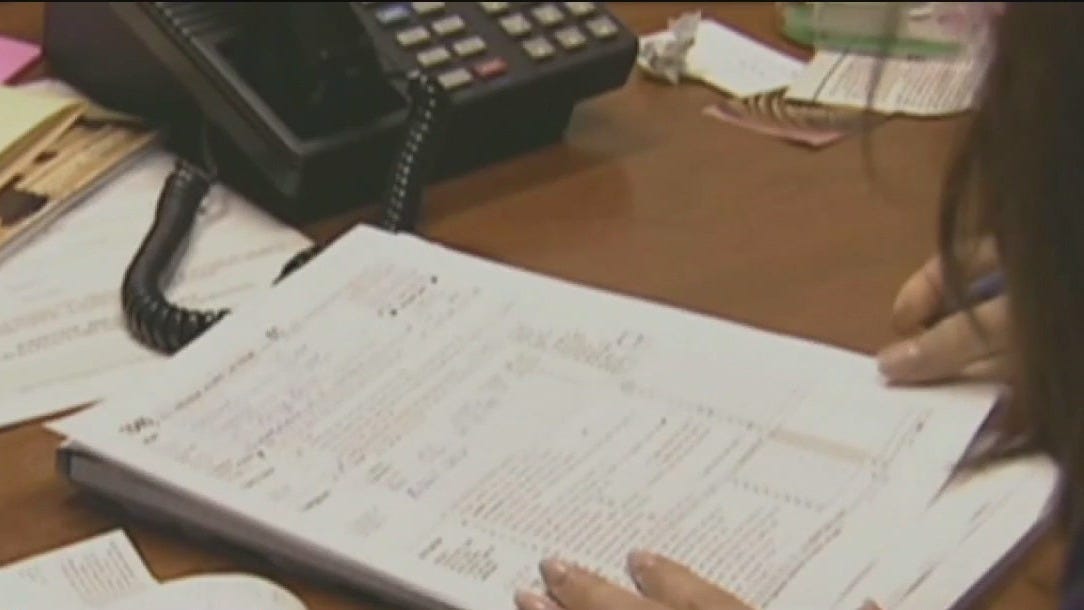IRS delays popular child tax credit refunds for 2024 returns. Here’s how to claim them

The Internal Revenue Service started accepting income-tax returns on Jan. 27, opening the spigots of refund money shortly thereafter. But taxpayers who claimed the Earned Income Tax Credit or the Additional Child Tax Credit will need to wait a bit longer.
“By law, we can’t issue EITC or ACTC refunds before mid-February,” the Internal Revenue Service explained on its website, irs.gov. “This includes your entire refund, not just the part that’s related to the credit you claimed on your tax return.”
If you claimed one of those credits, plan on a refund showing up by around March 3, the IRS said. Refund money generally will appear faster if you have it directly deposited to a bank account. The delays are designed to protect taxpayers from fraud, reducing the possibility that crooks might get in early and file for refunds in someone else’s name.
A popular federal tax credit among Americans
The EITC is a payment designed to help lower- and moderate-income workers, especially those with kids. Refund amounts vary depending on income and the number of dependent children. On average, taxpayers who claimed this credit received $2,743 in 2023.
What qualifies as low income? It varies based on the number of dependent children and other factors. Singles without any children can receive a credit with up to $18,591 in 2024 income or $25,511 for married couples filing jointly. Conversely, singles with three or more kids can qualify with income up to $59,899 or up to $66,819 for married couples. The lower the income and the more kids, the higher the potential credit.
The irs.gov website features an "EITC assistant" calculator to help you determine if you qualify and, if so, for how much of a refund.
In Arizona, nearly 516,000 federal tax returns were filed in 2022, the most recent year for which full statistics are available, claimed the EITC, the IRS reported. That was out of about 3.37 million individual federal returns filed by Arizonans that year.
Two interconnected tax credits for children
The Additional Child Tax Credit, the other benefit for which refunds are being delayed, is connected to the Child Tax Credit. Understanding one requires familiarity with the other.
The Child Tax Credit offers tax savings to parents, including those who otherwise might not need to file a tax return.
It's worth up to $2,000 for each qualifying child, who generally must be under 17, have lived with you for more than half of the year, provided no more than half of their own financial support and be a U.S. citizen, national or resident alien. Plus, the youngster will need a Social Security number and must be your child, stepchild, eligible foster child or other dependent.
The IRS also has an online tax assistant calculator to help determine if you qualify for this benefit, along with other explanatory information on it.
Married couples filing a joint return can receive the full credit with income of not more than $400,000, or $200,000 for single parents. Partial credits are available for incomes above those thresholds.
But you might not receive the full $2,000-per-child credit if your tax liability for the year is too low. That’s where the Additional Child Tax Credit comes in. It enables qualified taxpayers to receive up to $1,700 of that $2,000 amount as a refund. You first apply for the Child Tax Credit to determine eligibility for the additional one.
“Understanding the Additional Child Tax Credit begins with the standard Child Tax Credit,” noted TurboTax. “If your available Child Tax Credit is greater than your tax liability, the Child Tax Credit can only reduce your tax bill to zero — you don’t get any unused portion of the credit back as a refund.”
You also can start the process by filling out the Child Tax Credit worksheet contained in the instructions for Form 1040.
Roughly 410,000 returns filed by Arizonans in 2022 claimed the fully refundable Child Tax Credit or Additional Child Tax Credit, the IRS said. The nonrefundable child-related credits were claimed nearly twice as often.
There are other related benefits, too, such as the Child and Dependent Care Credit, which offers partial subsidies for working parents who must pay helpers for assistance, and the Credit for Other Dependents, for those who can’t qualify for the Child Tax Credit.
Reach the writer at russ.wiles@arizonarepublic.com.